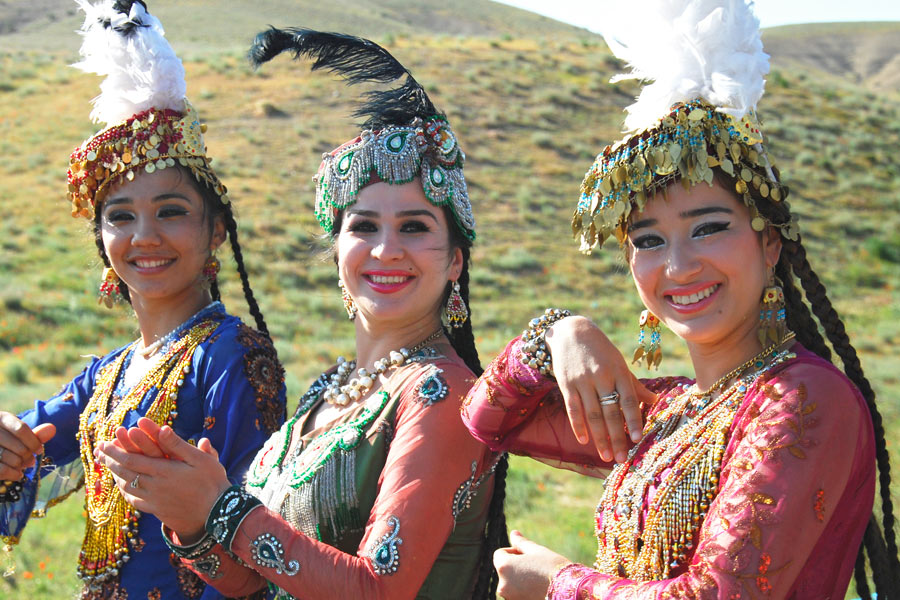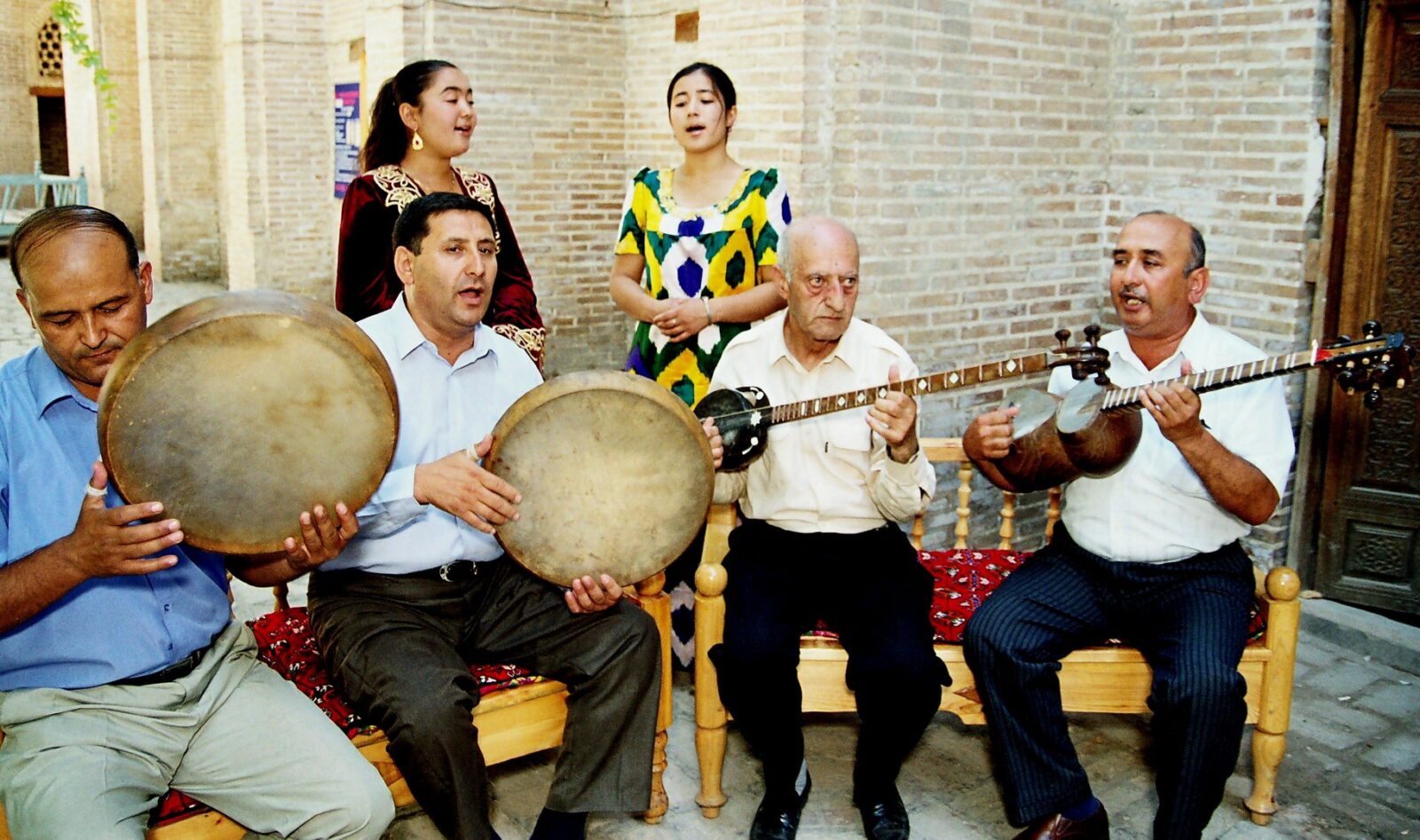Much of the music from Uzbekistan is similar to that of the larger Central Asia region in general. Highly influenced by the music of the Middle East, many of its rhythms and instruments are derived from traditions brought over when it was once ruled by Persia.
One of their most well-known classical music styles is called shashmaqam. It’s a musical composition that is made of six different parts, with each part in a different musical mode. (The name literally translates to “six maqams.”) In between some of the musical pieces, there is an interlude of spoken Sufi poetry.
Some of the instruments used in classical and folk music include the tanbur (a type of long-necked wooden lute with four strings that’s sometimes bowed), the dutar (another long-necked wooden lute with two strings, although some versions have much more), the sato (similar to a tanbur but with five strings), and the dayra (a type of medium-sized frame drum with metal ring jingles around the inner edge).
 |
| I love the traditional dance costumes with the jewelry and accessories. So beautiful! |
Dance generally falls into two types: traditional dance or folklore dance. Both styles are characterized by their facial expressions and expressive hand movements. Folk dances can vary from region to region and are typically performed at weddings, holidays, and other gatherings. When it comes to classical dance, there are three schools: Bukhara (sharper gestures, shoulders back, goldwork sewn into their dress), Khorezm (original, distinctive movements), and Ferghana (smoother, more expressive gestures).
:format(jpeg):mode_rgb():quality(40)/discogs-images/A-1305789-1257073811.jpeg.jpg) |
| Turgun Alimatov |
As the Russians moved into the area during the 19th century, there was some attempt from Russian musicographers at preserving the melodies in Turkestan (a historical area that includes Uzbekistan, Tajikistan, parts of Kyrgyzstan, parts of Kazakhstan, and parts of western China). However, by the 1950s, things changed. The popularity of folk music started to wane, and the Soviets even went so far as to ban it completely from the radio. (Sheesh, everyone’s a critic.) But that never stops musicians, they just went underground with it, playing and spreading their music individually instead. Naturally, after the country gained its independence, there was a surge in folk music and all things culturally Uzbek. When it comes to classical and folk music, a few musicians of note include Turgun Alimatov (considered one of the greatest folk musicians in Uzbekistan), Muhammadjon Mirzayev (famous composer), Sherali Jo’rayev (popular traditional singer), and Ozodbek Nazarbekov (mixes traditional music with contemporary music).
 |
| Sevara Nazarkhan |
Thankfully, I was able to find a few musicians on Spotify. One of the most well-known Uzbekistani musicians is Sevara Nazarkhan, bringing her music to the international stage. Her music is kind of relaxing and chill from what I’ve heard on her newest album. It’s a little bit pop but in a way that’s almost like a cross between Sade and Björk, kinda. I like it. Another pop musician that I listened to is Sogdiana Fedorinskaya. She has more of a dance-pop sound to it and is fairly catchy.
I found one hip-hop artist who goes by the name of Shoxrux. I like his flow, even though I don’t understand anything he’s saying. From what I heard from his album called Davom Etar, most of the songs are pretty chill, although there might be a couple that are faster.
For some reason, it was hard to find rock bands on Spotify, but I also think it’s because it’s not a super popular genre there. There are a few metal bands that exist, but from what I gathered is that they are either underground, or few and far between. I did find Bolalar, a band that was popular in the 1990s and has a kind of a rock-synth pop sound to it.
I also sampled one that sounded like a modern take on traditional music, as sung by Feruza Jumaniyozova. You can certainly pick out the traditional instruments and forms of the songs, but it’s done with a modern pop take on it. Another singer that falls in this category is Yulduz Turdiyeva. She actually sings in Uzbek, Azeri, and Persian. Much of her music is characterized by her ability to improvise.
Up next: the food





No comments:
Post a Comment